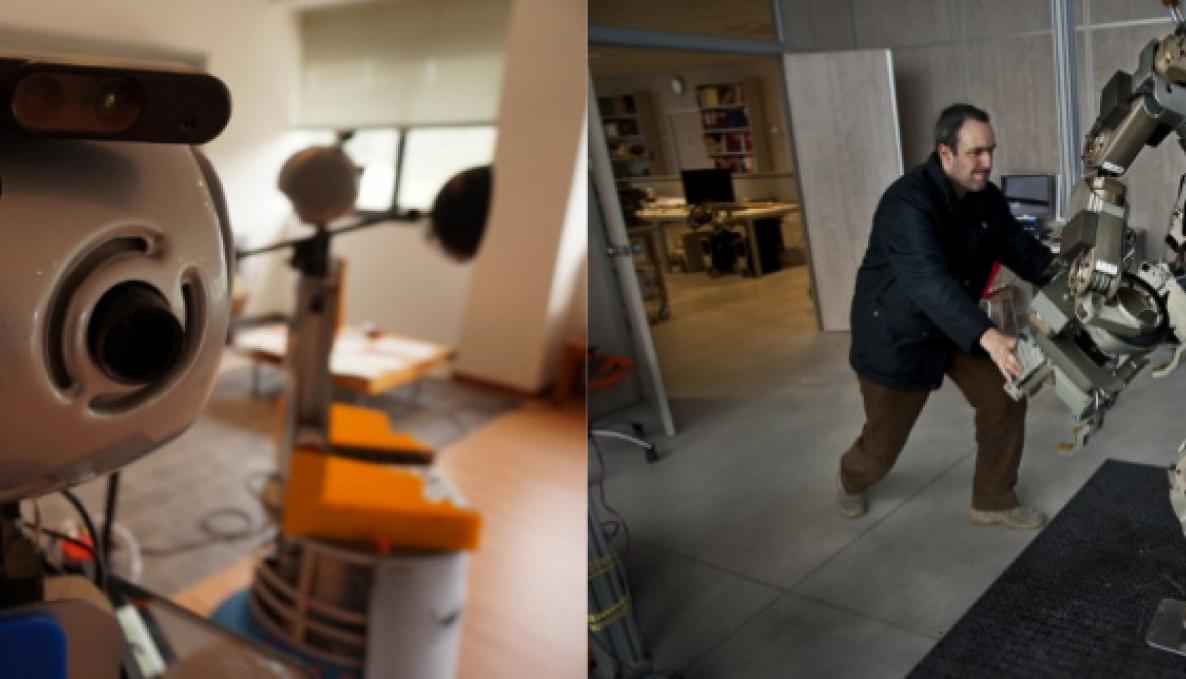Pisa Robotics week will take place September 7 -13, 2017. The first edition of Pisa Robotics International Festival will show how robots can improve our health, quality of life and workplace

Service robotics will assist humans: robots will rescue man from manual labor, work effectively in hospital operating theatres, improve health and quality of life for individuals with disabilities, narrow North-South inequality, unveil unexpected artistic expression. The first international robotics festival will be held from 7-13 September 2017 in Pisa. With a small town population, Pisa boasts high-quality robotics research, technology services and resources. Pisa provides its community with significant opportunities for research and its rich academic environment offers an unparalleled leadership in robotic technologies used in a variety of tasks – robots, from Slavic term robota (forced laborer, servitude), can serve several human needs.
Pisa, as a town devoted to scientific research, created strategic alliances between Fondazione Arpa, Istituto di BioRobotica della Scuola Superiore Sant’Anna, Centro di Ricerca “E.Piaggio” Comune di Pisa, Scuola Superiore Sant’Anna, Università di Pisa, Scuola Normale Superiore, Consiglio Nazionale delle Ricerche, Irccs Stella Maris, and Centro di eccellenza Endocas to promote the first robotics festival – which is free to attend and open to all ages – and will include robotics activities, simulation, vision systems, open labs, special events, seminars, meetings and forums bringing together robot-related experts, engineers, researchers, pioneers in robotics and artists with visitors. The Robotics Festival will be a unique opportunity to learn about the latest advances in surgical and medical robotics, discuss the role of robots in society and focus on the role of robotics to support humans.
Events for people of all ages will be held on September 9-11 – robotics in arts and drama; September 9-11 – simulation and training system of robot assisted surgery; September 10-13 – sports for people who overcome disabilities; September 11 - robotics in the fourth industrial revolution; September 11 - law and ethical regulation of robotics; September 11 - robotics in pharmaceutical manufacturing and distribution system; September 12-13 – robotics for humanitarian assistance; September 12-13 – robotics to narrow inequality gaps; September 12 – investors in robotics industry. The festival will be held at 12 locations from across Pisa, making evocative collection of historic buildings.
“The goal of this first Robotics Festival in Pisa – said Festival Director Franco Mosca, President of fondazione Arpa, Professor Emeritus of medicine at Pisa University and one of the major supporters of the initiative, is to develop a project conceived by Paolo Dario a few years ago. All the partners have participated in formulating and putting into practice the current plan. Particular priority has been given to the dissemination of research findings and, despite the low budget available I think we reached the goal. Notwithstanding concerns about robotics that will steal our jobs and create inequality, I think the robots have a potential to contribute to the health and well-being of our society. Robots will work cooperatively with people. They will support individuals with disabilities, help the elderly, and will serve as a personal assistant.
In addition to that, a closing talk will focus on the current and future role of robotics technologies applied to humanitarian efforts and international cooperation in the developing countries”.
“Human-friendly robots are based on advanced technology. In 1992, we organized the first robots exhibition at Sant’Anna School and a festival event was initially conceived – said Paolo Dario, coordinator of the scientific committee and the director of Sant’Anna School Biorobotics Institute. For more than two decades the Biorobotics Institute has been at the forefront of robotics and innovative technologies, and we have always been very focused on social and ethical implications of robots as caregivers and servants. Robots will be all over the workplace in a couple of decades and many believe robots will take most of the work done by humans. As we enter the era of the fourth industrial revolution, I think human-friendly robotics applications will bring opportunities for Italian manufacturers (surgical robotics companies, autonomous robotics and facility interaction companies) and significantly increase the employment rate.
The Festival – according to Paolo Dario - has the potential to contribute to show recent advances and technology development in the area of human-friendly, safe and useful robotics systems. “The festival will show visitors how robots can help in elder care, medicine, disaster response and humanitarian assistance”.
“The robotics festival – said Arti Ahluwalia, director of “E.Piaggio” Research Center at University of Pisa, will explain that robotics have seen significant advances and is going to play a key role in the future. To achieve systems integration and assemble perceptive robotics systems we will require a deep understanding of human behavior and brains, and our emotional needs. We can build robots to serve humanity through a significant interaction between biological systems, cellular biotechnology, and bio engineering. The ultimate goal is to develop a multipurpose human-friendly assistive robot system, capable of providing support and interacting with humans and the environment”.
“Pisa is recognized nationally and internationally for high-quality robotics research – said the Mayor Marco Filippeschi. The University is placing special focus on the development of several critical areas that form the basis of our future: innovation within industrial robotics, healthy aging and medical robotics. This Festival provides opportunities for academics, experts, students and visitors to explore the impact of robotics, artificial intelligence, and mobile sensors on human life. The City of Pisa, in collaboration with various partners, is happy to support this community-based initiative designed to focus on environmental, economic and social implications, to create synergy between institutions and ensure high political and strategic relevance”.
Cover photo: Sant’Anna School project “Robot-Era”, personal assistant robot helping to reduce efforts in domestic and professional environment
Cover photo: exoskeleton “Body Extender” system designed by TeCIP PERCRO Lab. (Photo credit: Enzo Cei, Fondazione Arpa)



